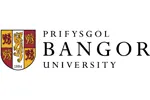

| The award | How you will study | Study duration | Course start | Domestic course fees | International course fees |
|---|---|---|---|---|---|
| BSc (Hons) | Full-time | 3 years | September | GBP 9000 per year | GBP 14300 per year |
Biotechnology is the application of biology to improve quality of life, and the health of our planet, via the innovative use of cellular and molecular processes to develop beneficial technologies and products.
Historically, biotechnology has had a significant impact upon human life, with the earliest biotechnologists harnessing the fermentative capabilities of microorganisms to produce food products such as bread, cheese, beer and wine. In today’s world, modern biotechnology offers breakthrough products and technologies to combat disease, reduce our impact on the environment, feed the hungry, reduce our energy demands, provide cleaner energy, and produce safer, cleaner and more efficient industrial processes. This degree will empower the next generation of scientists to address global issues in an innovative manner to heal, fuel and feed the world.
You will receive training that covers evolutionary, ecological, environmental, molecular and cellular aspects of biology, and there is opportunity to follow applied aspects of biology as well as learn about fundamental processes and mechanisms. Our teaching is underpinned by internationally recognised research. Academic staff in the School of Biological Sciences have a well-founded expertise in biotechnology research, derived from a number of biological disciplines covering medical and environmental microbiology, plant biology, biodiversity and genetics, and cell and genome biology. We also provide a diversity of practical, laboratory and field biology experience, enabling you to acquire transferable skills (data analysis, group work, writing and presentational skills, IT skills). Extensive use is made of the exceptional range of local terrestrial and aquatic habitats during field courses and practical classes. We are unusual among British Universities in having our own botanical gardens with various habitats for biological studies. We are also part of the Environment Centre Wales, which is a partnership venture between Bangor University and the Natural Environment Research Council’s Centre for Ecology & Hydrology (CEH).
For information and further detailed guidance on entry requirements for EU and International Students, including the minimum English Language entry requirement, please visit the Entry Requirements by Country pages. International applicants can also visit the International Education Centre section of our website for further details.
Below are some suggested courses at other providers that you may also be interested in:
Public Administration, Public Management and Policy Studies MPA
The University of Haifa
Find out moreIf you do not meet the entry requirements for this course then consider one of these courses from another institution:
There are 617 other courses listed from Bangor University. A selection of these are displayed below:
Join the StudyLink email list and never miss a chance to turn your study abroad dreams into reality!

Find out more about studying in the United Kingdom
As an international student you may require a valid visa to study at Bangor University. Read more about the requirements in our Guide to the United Kingdom International Student Visa Requirements.